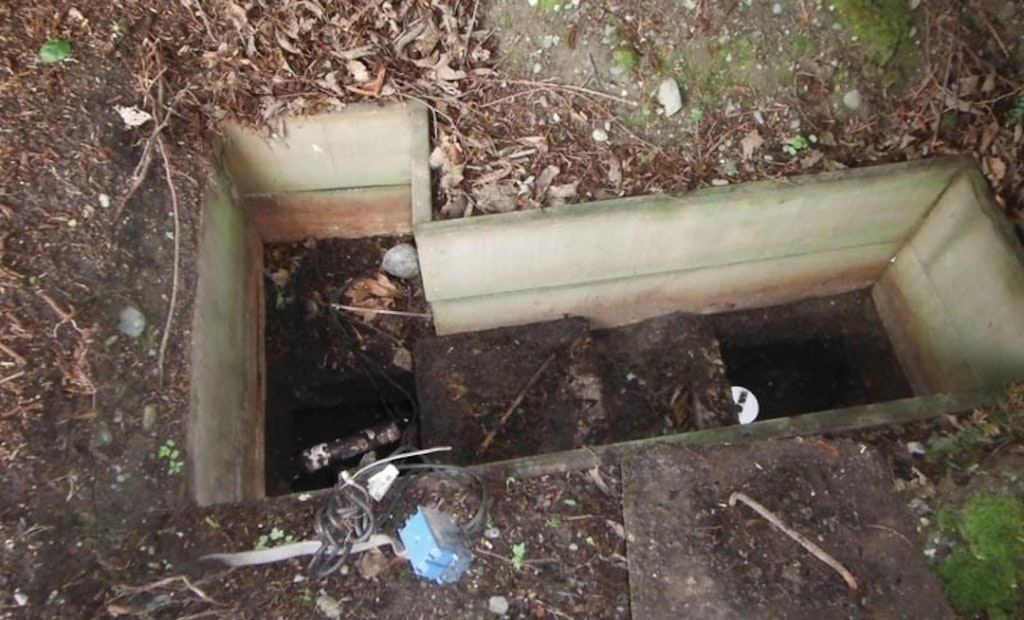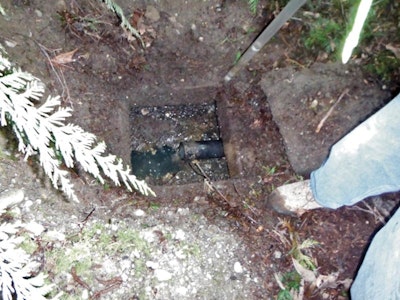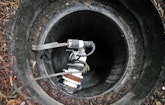
Look out for the homebuyer’s interests
I have read articles over the years regarding different aspects of our septic industry, and this particular article about real estate inspections is one that conjures up a lot of passion for me.
To the point of home-sale inspections of septic systems, we find that for the most part the only party who really wants to know the condition of the entire septic system is the buyer, and then only if they know or have been told by their Realtor what to ask.
It is the seller’s responsibility to pay for the inspection, and the seller typically will rely on their Realtor to hire the inspector. Guess whom the Realtor hires? The inspector who will not mess up the home sale and may be half the price of others.
We pride ourselves at performing very thorough inspections, but this has led to a decline in our home-sale inspections because the Realtors gravitate toward inspectors who will not find anything wrong, do incomplete inspections, offer a cheaper price, etc. This is all because the Realtor does not want the sale (their profit) to be put at risk, and more importantly, no one is held responsible for a complete inspection. The Realtor and seller can’t disclose what they don’t know, right?
We have provided numerous examples to our county sanitarians regarding inadequate inspections that have led to thousands of dollars in repairs paid for by the new homebuyer because the inspection done by “the other guy” said the system was “OK.”
In one example, we just repaired a system at a cost of $9,000 to the homebuyer just after it was inspected (at the point of sale). Originally installed in the 1990s, the septic system was inspected a few years ago. The septic report at the time shows only a septic tank and the system was marked that all was OK, “no deficiencies.”
The septic system actually included the septic tank, pump tank, sand filter, alarm(s), drainfield, pump tank pump, sand filter pump, floats and sewage pump in the basement. The new homeowner called us to see if we could increase the size of the system. We pulled the as-built drawing and the inspection report only to discover there was a discrepancy in components listed in the time-of-sale inspection, and we recommended another inspection.
Our inspection revealed a failed sand filter; missing alarms; no inlet baffle coming into the septic tank; incorrectly sized piping; flooded inlet baffle; corroded, exposed electrical connections; root intrusion in laterals; and sludge in a manifold preventing equal distribution of effluent.
We continually find inadequate inspections by several licensed septic companies, but they continue to get the calls because they don’t find problems that could jeopardize the sale and they are cheap. There is shared responsibility from the Realtor, inspector, seller, county and homebuyer to ensure what is being sold and purchased has a properly functioning septic system that is safe.
I am working with my local county to standardize the inspection process and provide consequences for poor work, but have yet to see anyone held responsible. The unaware buyer who thought the inspection report was complete ends up paying the bill for the repairs.
We are a full-service company and have a very high standard for all work we perform, and it is part of our strategy to educate the county, homeowners, Realtors and other licensed professionals on best management practices and to encourage “septic success” for our industry. When any of the points of contact involved in the septic inspection process fail to have integrity, honesty or the experience to perform the work, it only makes our job more difficult when trying to convince the owner of a septic system to take care of it.
Alan Chapin, Envirotek, LLC, Camano Island, Washington
Find ways to encourage better inspections
Thank you for bringing this subject matter to the table. This has been a hot topic in Maryland and a topic in which I have been very vocal. The Maryland Department of the Environment recently came out with a policy mimicking this inspection procedure, which we instruct in our Maryland certification course through MOWPA.
First, let me agree with you that there is no consistency with septic evaluations for real estate transfers. This is true in Maryland where we see dye tests, septic cleanings being disguised as inspections, drainfield evaluations by probing, camera inspections and everything in between. I have voiced my opinion for the need of a more standardized inspection procedure helping give better consistency to the market, while improving the quality of standards within our industry. The lack of consistency is confusing to customers and creates hostility among competing septic inspection professionals.
“What should be performed for real estate transfer septic inspections?” We must consider market conditions. A major difference with our customers is that they are not the homeowner; they are prospective homebuyers performing due diligence to make an educated and always risky decision. This puts constraints on the resources that a buyer feels comfortable allocating toward a particular inspection or test.
Leaving no stone unturned proves to be an inspection where any problems that can be found will be found. This is great advice to new septic inspectors or septic companies that want to offer to do a few septic inspections outside of a regulated market. However, it’s unfair to suggest that this is the only correct septic inspection to a full-time septic-inspection company that depends on fulfilling the needs of their customers. The question of what type of septic inspection should be performed cannot be answered with only considering one variable: the number of potential problems to be found.
Many variables need to be included in the equation: type of system, age of septic, expenditure to customer, damage to property, if there are accurate septic records on file, etc. Another market constraint we run into is the law of diminishing returns. Sooner or later in the sequence of turning stones, a stone will eventually be too costly to overturn as its benefit decreases, making that added expenditure equal to dollars wasted. A company should not be frowned upon for providing the best septic inspection the prospective homebuyer’s dollar can buy.
The obvious question is at what point, or added service, is it going to stop being an added benefit and start being a waste of money? This can’t be answered by a regulator, real estate agent or septic inspector. It can only be answered by the prospective homebuyer, given their understanding of their risk aversion, disposable income and many, many other factors. What septic inspectors, regulators and real estate agents can do to help prospective homebuyers is to educate them truthfully and honestly.
Here lies a deeper problem with septic inspections, as your article brings to light: Are we educating our homebuyers accurately? I do not believe so. I believe septic inspection companies have incentives to push for profitability over value, or cut services to compete for price. Real estate agents have an incentive to close a deal, which generally would suggest a lighter evaluation is their incentive. It’s hard for regulators to give good information because they simply do not do the work in the marketplace. They speak to the supply side of this economic question: What problems can be found with each service? But they can’t speak to the demand side: what an average, prospective homebuyer wants given their finances, risk aversion, etc.
For structural permitting purposes, our local health departments do not inspect systems with the same high standards for permits and repairs. Why is it only important during a real estate transfer? The real estate marketplace is much more complex than a market where the homeowner pays for their own inspection for their own benefit. Why aren’t we asking every homeowner to do an inspection for a property they own every seven years? The septic companies should already be selling this to current homeowners to protect their investment.
It would make much more economical sense to encourage (or force) a homeowner to pay for an inspection, versus to continuously depend on the real estate industry to perform inspections and tests that prospective homebuyers simply do not want. That this service is not being provided to existing homeowners goes to prove that the cost is not perceived to be worth the benefit.
In a perfect world all components should be located and viewed. However, in Maryland, even if a buyer does want a higher-quality inspection they may not be able to purchase it! This is because the home seller is also a deterrent to allowing this type of evaluation on their property. In certain septic addendums on contracts, the sellers have the right to forbid excavation. Also, in Maryland – and I’m sure many other states – regulations allow for buried manhole access lids and distribution boxes. If septic inspectors are to prosper from doing a more comprehensive inspection, we need prospective homebuyers who are willing to pay for it. For this to be more prevalent, we simply just need access. I don’t know of another industry that hides important system components beneath the ground.
In short, regulators, septic inspectors and the real estate industry need to work together for a better septic evaluation to be more cost-effective (access requirements), easy to perform (real estate contracts) and more consistent (quality companies doing quality work). The other alternative
is regulation.
Timothy M. Shotzberger, Home Land Septic Consulting, Essex, Maryland
Educate the consumer
I read your article on inspections. You are so right. We have performed inspections for 10 years and have pumped for over 20. Our neighboring county has what’s called a property transfer inspection. We locate all drawings of the system before we arrive. We take pictures of the front of the house, well, tanks before we pump, after we pump, sludge depth, hose in tank as we pump, and measure distance from well to septic and drainfield.
When we first pull up we always expose the tank and ask the customer to add approximately 50 gallons of water to the system, either through the house or by hose. We check for a rise in the tank or high water marks, probe the drainfield and try to locate the D-box and document all findings. A Sludge Judge or core sampler removes the guesswork.
I have a lot of customers who say the last pumper “said my tank was OK.’’ I ask how they knew. Did they pull a sample? The answer is always no! So I pull a sample, then explain why we are doing this. We are certified inspectors through the Indiana Onsite Wastewater Professionals Association (IOWPA) and signed up for the inspection course as soon as it was available. Finally, my wife contacts the customer before we inspect to ask questions, such as how many bedrooms, water supply, if the house is occupied and how many people in home, last time it was pumped, and any repairs to
the system.
Jon Housekneckt, Sunset Septic & Excavating, La Porte, Indiana
I will share point-of-sale advice
I read your article in the February 2015 Pumper and really liked it; very informative for the home consumer. I am going to share it with many of my Realtor friends. There are one or two engineers/sewage enforcement officers who perform their own hybrid real estate inspection. There are some home inspectors performing awful “imitation” inspections, while others are totally out in left field with their inspections.
Most septic service companies do perform a version of the PSMA (Pennsylvania Septage Management Association) inspection. However, I am always baffled why many do not reference they are actually performing a PSMA inspection on their report. I don’t know if it is fear of liability? I think it brings legitimacy if one references their source, and the consumer realizes it. In addition, using your association source, whether it’s the PSMA, NAWT (National Association of Wastewater Technicians) or NSF, builds respect for the association and the industry as a whole.
Rob Bowie, Bux-Mont Inspections Inc. Sellersville, Pennsylvania








